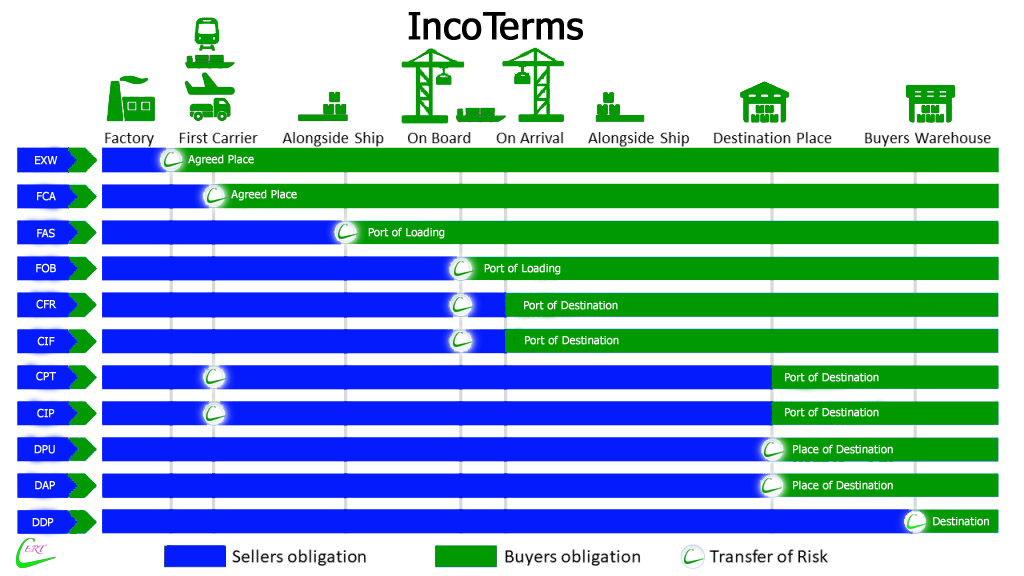More on the Incoterms rules and letters of credit
How to align the letter of credit with the Incoterms rule
The letter of credit environment is by definition one of limited trust – sellers have concerns about getting paid, buyers want to be sure that the goods they ordered are supplied as per the contract, within the agreed timeframe etc.
A key principle of letter of credit usage is that all the documents called for should be ones that can be supplied by the seller (e.g. the commercial invoice) or whose issue is under the control of the seller – for example, the transport document, where the carrier takes instructions from the seller.
With the Incoterms rules FCA, FOB and FAS, the buyer is responsible for the main carriage, and so is in a position to interfere with the issue of the transport document that is called for by the letter of credit. This will prevent the seller from presenting compliant documents and getting paid.
For the “F” rules a freight forwarder’s receipt may be acceptable instead of a transport document – though many buyers are not enthusiastic about them.
The “C” rules work best with letters of credit. Other rules all present problems, but there may be workarounds.
For more details regarding the updated 2020 terms, please speak with your nominated shipping company or refer to the International Chamber of Commerce.
There are two key changes in Incoterms ® 2020 compared to the last edition:
- DAT (Delivered at Terminal) is renamed Delivered at Place Unloaded (DPU)
- FCA (Free Carrier) now allows for Bills of Lading to be issued after loading
Other changes include:
- CIF (Cost, Insurance and Freight) and CIP (Carriage and Insurance Paid To) set out new standard insurance arrangements, but the level of insurance continues to be negotiable between buyer and seller.
- Where listed, cost allocation between buyer and seller is stated more precisely – one article lists all costs the seller and the buyer are responsible for.
- FCA (Free Carrier), DAP (Delivered at Place), DPU (Delivered at Place Unloaded) and DDP (Delivered Duty Paid) now take account of buyer and seller arranging their own transport rather than using a third party.
- Security-related obligations are now more prominent.
- “Explanatory Notes for Users” for each Incoterm® have replaced the 2010 edition’s Guidance Notes, and are designed to be easier for users.
- CIP now requires as default insurance coverage ICC A or equivalent. It was ICC C under Incoterms® Required insurance coverage under CIF remains.


